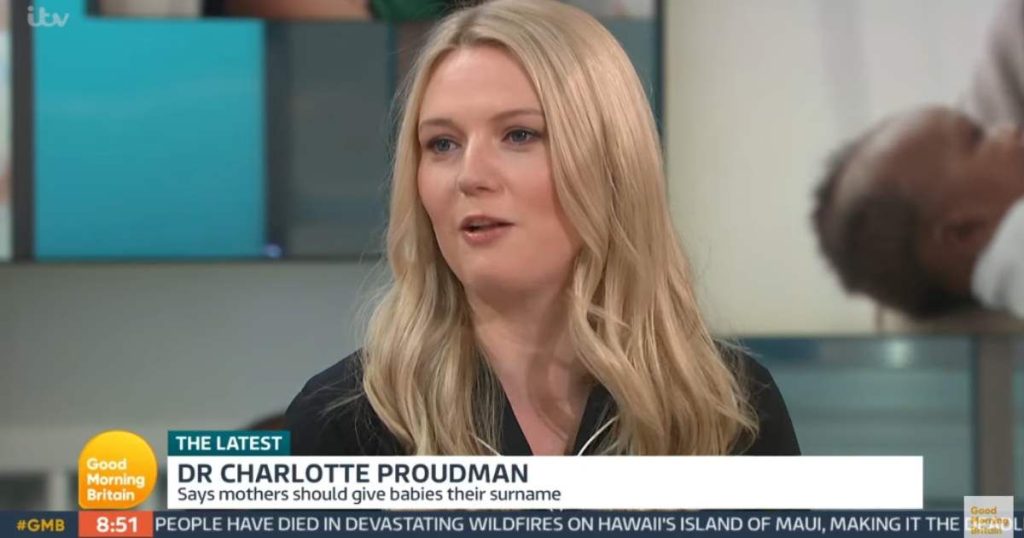A lawyer suggested that newborns should automatically be given their mother’s surname at birth, not their father’s. The argument sparked debate about gender norms. Find out more in the article below.
Challenging Tradition: Why Is His Name More Important?
In a now widely circulated video, the lawyer asks, “Why does the child automatically take the father’s surname? Why is his name more important than yours?” This simple but pointed question resonated with many, particularly women who have long questioned patriarchal customs embedded in family naming traditions. Historically, most children in Western cultures inherit their father’s last name by default. The lawyer’s argument, however, suggests this practice is outdated and unfairly dismisses the identity, heritage, and contribution of the mother.

Public Reactions: Divided Opinions
The video generated thousands of comments and shares. Supporters praised the lawyer for highlighting a conversation that is often ignored. Many users, particularly mothers, said they felt validated and empowered by the suggestion. Some even shared personal stories about choosing to give their children their surname instead of the father’s—or facing criticism when they tried.
One comment read: “I carried this child for nine months, went through labor, and am still the primary caregiver. Why shouldn’t my name come first?”
However, not everyone agreed. Critics argued that the tradition of passing on the father’s surname is a cultural norm that fosters family unity. Others claimed the discussion was unnecessarily divisive and that both parents should agree together on the child’s name, regardless of tradition.
Legal and Social Implications
Legally, in many countries, parents are free to choose their child’s surname. However, societal pressure and long-standing customs often influence these decisions more than the law. The lawyer’s remarks have prompted many to reevaluate how much say mothers actually have in naming their children, especially in relationships where traditional gender roles are dominant. Some experts also noted that in cases of unmarried or single mothers, the surname debate can be even more complex. Courts may be involved in disputes, and outcomes can vary depending on jurisdiction and parental rights.
A Growing Shift in Perspective
While the tradition of children inheriting their father’s last name remains widespread, attitudes are slowly shifting. More couples are now choosing to hyphenate surnames or even create new family names. Some mothers are pushing back against the norm entirely and naming their children after themselves. Feminist groups and equality advocates view the surname conversation as part of a larger movement toward gender balance in parenting, identity, and legal rights.

Conclusion: A Name Is More Than Just a Tradition
The debate sparked by the lawyer’s viral video highlights how even seemingly small traditions can carry significant social weight. Whether it’s a question of fairness, identity, or cultural change, the discussion around surnames opens a broader dialogue about equality in parenting roles. As society continues to evolve, so too may the customs we once thought were set in stone.

















